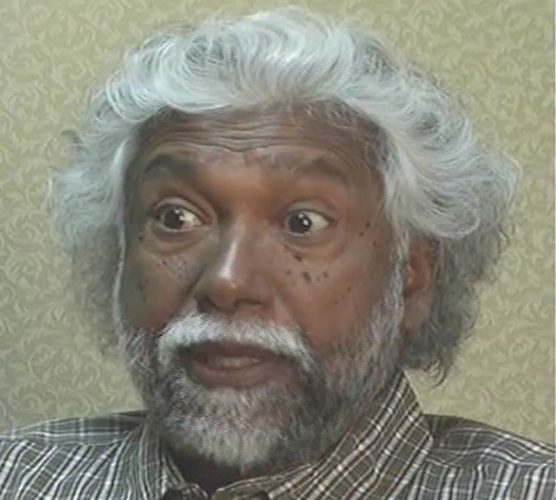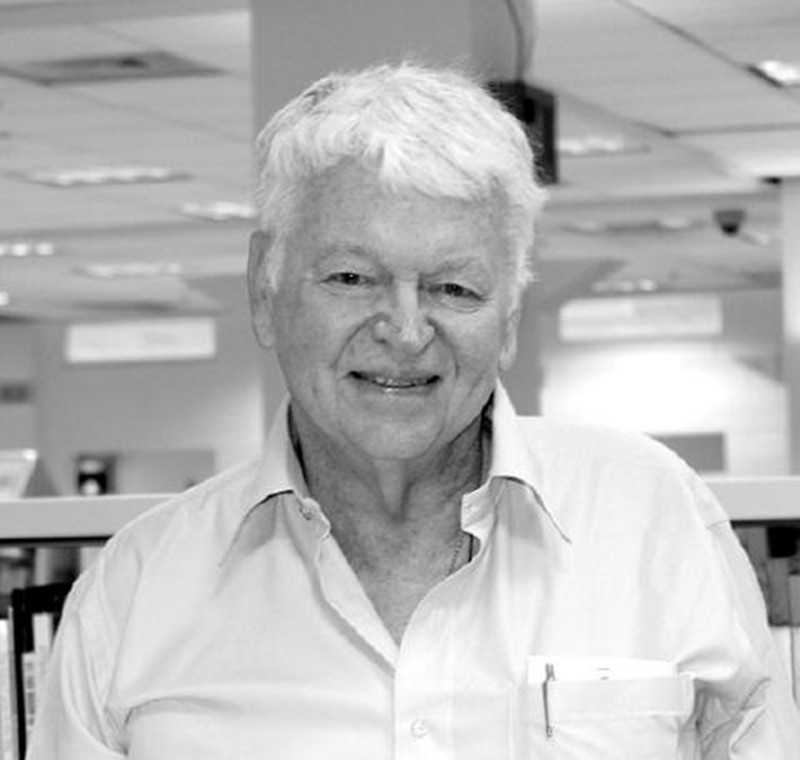
Estate Talk
Auntie Finey
Standing by de pailin
Engaging in discourse:
“A wen you cum, bet?”
“Me cum yestiday, Auntie”
“A how you do na bet?”
“Me deh auntie”
“How you du?”
“Wa me gu tell you, me picknee
pain a kill me
Ya walk all ova me baady”
“ah how uncle do, Auntie?”
“Beti, da man a ge me too much worries
As soon as e get e money
E gaan a rum shap
Night an day ya dhakolay daru
Da man da
Na kay if
Good Friday faal
Pan a Sateday.”
– Peter Jailall
Kowsilla
The bosses made demands:
‘Weed cleaner!’
“Weed lower and faster!”
They had to eat standing in the rain
Or eat sitting in the scorching sun.
But Kowsilla and the women said:
“No!”
Only to face the deadly colonial machine
That mowed her down.
March 6 1964 was a dreadful day
When the tractor at Leonora
Crushed Kowsilla.
All Guyana stood still.
The wailing began
Followed by the long, angry procession
Moving and moulding the movement.
The people buried their heroine –
Young, beautiful, courageous.
– Peter Jailall
Nani Goes to Vote
My Nani Painee turns out to vote.
The English-speaking returning officer asks,
“Lady, do you want to swear by the Bible?”
“Na!” Nani Painee replies.
“By the Gita?”
“Bell a wa den,” Nani says, disgusted.
“Well, repeat after me, the officer says.
“I, Painee, do solemnly swear…”
“Eh Hey,” murmurs Nani.
“Lady, please repeat after me.”
Nani, who hardly speaks a word of English,
answers
“Me dun taak am in me mine aredy.”
– Peter Jailall
In 2018 two friends, Ian McDonald and Peter Jailall, who they admitted, “come from very different backgrounds and living experiences”, but who, “over the years, formed a strong friendship”, jointly published a collection of poetry titled People of Guyana. They declared: “We write out of different poetic traditions and inspirations but in this book our theme is the same – the nature and, in particular, the marvellous fortitude of people in all their variety”.

They quite appropriately dedicate the collection “To the people of Guyana in their variety and vitality One Nation”. Almost all the poems by both writers are portraits of Guyanese from different stations of life, of a range of ethnic, class and cultural backgrounds, especially presenting colourful, vivid, sometimes humorous, but often solemn, sad or moving pictures which tell something of the Guyanese experience.
McDonald is among Guyana’s most established poets with several very well-known publications and quite a range of poetic styles firmly in the literary tradition. Jailall’s work as a poet might be new to many readers, since he has not had the same level of circulation and exposure.
Jailall belongs to the tradition of performance poetry, or spoken word. This is so because his poems appeal more to the ear than to the eye. They work better in performance than they appear on the printed page, and indeed were written as narratives with the rhythm and oral quality of speech. They are dramatic and one of the more striking things about them is the use of language. Jailall covers the continuum of Guyanese English from the standard, most used in narration, to varieties of the Creole language. Many characters come to life through their rendering of Creolese, mainly the basilectal quality of the East Indian plantation speech.
A number of critics have commented on the collection in a way that gives an insightful understanding of the content and impact of the book. Historian and critic Prof Clem Seecharan, formerly of London Metropolitan University, had this to say: “Every encounter with these two gifted Guyanese poets (both of whom I have known for over thirty years) fill my soul with laughter and tears, but always remind me to see silver linings rather than lamenting areas of darkness.” He finds the poems, “shaped by their generosity of spirit and abundant capacity for empathy and fun – a celebration of the full life.”
One of Guyana’s prominent women poets, who has published a number of her own collections, Janet Naidu, observed that the poets “preserve powerful moments that are rich in the experience of our Guyanese people. The poems profoundly draw upon the diversity of our Guyanese people, in terms of gender, race, social existence and offer deep philosophical insights into what it is to be human.” There are “poems of strength, respect, courage, compassion, love and loss, as they depict folks in society . . . thus taking readers through life in the city as well as villages of Guyana,” she added.
McDonald’s contributions to the collection are mostly pieces that were previously published or anthologised, including a number of gems from Mercy Ward (1989). Jailall’s publications include Jottings (2014), When September Comes (2003) and This Healing Place (1993).






